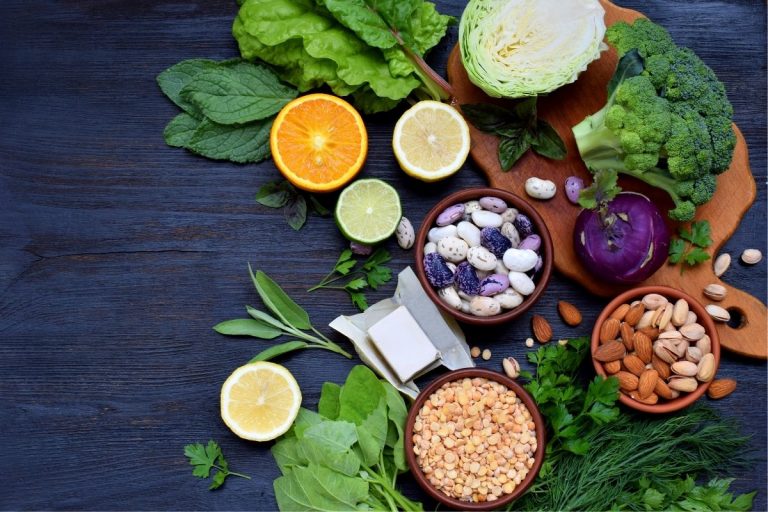In association with professional midwife experts at birthEd, find out everything you need to know about pregnancy at 3 weeks, including how your baby is growing, changes to expect in your body and pregnancy health, nutrition and wellness advice.
| Week 3 |
Week 5 |
4 Weeks Pregnant – Your baby, your body & you
Your Baby
Your baby is no bigger than 1mm long. It is known as a blastocyst (a tiny ball of cells) and it is busy settling into your uterus where it will be for the next 8 months. This process is called implantation. The cells surrounding the blastocyst, called trophoblast cells, adhere to the lining of your uterus and digest endometrial cells until it is securely attached. The trophoblast cells produce a hormone called human chorionic gonadotopin (hCG) and after a few days there is enough in your bloodstream, which you will excrete in your urine and make a home pregnancy test positive.
Back in the space where the egg was formed the corpus luteum, which when the egg was released, started to produce the hormone progesterone to prepare the uterus for a baby. During implantation HcG signals the corpus luteum to continue to make progesterone and to stop your period from happening. Progesterone also keeps the integrity of the uterus making sure that there is enough blood and nutrients to nourish and support your baby and the growth of the placenta.
During this week, your baby’s amniotic sac – ‘bag of waters’ – and yolk sac, develop around the embryo. The yolk sac actually produces blood and will help to nourish your tiny embryo. Later it will become incorporated into your baby’s developing digestive tract and ultimately will become the placenta.
The cells are rapidly dividing, essentially forming two groups – half of these cells will become your baby and the other half will become the placenta. The placenta provides the life line to feed and nourish your baby, remove waste products and make the hormones needed to sustain the pregnancy.
Your Body
Around the time your period is due, you may still feel familiar period-like cramps and bloating.
You may experience light bleeding or spotting, this is not serious and does not mean you are not pregnant. This is called an ‘implantation bleed’ and up to 25% of women experience this following conception and it occurs when the blastoplast burrows into the uterine wall. The way you can tell whether it is implantation bleeding or not is by the colour and timing. The colour would be light pink, light red or light brown and it would also be happening earlier than your expected period.
Preparing for Baby
There is a lot of research that provides strong evidence to support the importance of increasing your intake of folic acid (a common B vitamin, B9) during the first 12 weeks of pregnancy to reduce neural tube defects (NTD’s) in babies. Spina bifida is the most common type of NTD and occurs when the spine and spinal cord and supporting tissue don’t form properly in early pregnancy. In the first 28 days after conception, the neural tube develops into the baby’s brain and spinal cord.
Babies born with spina bifida are affected for life and symptoms can be mild to severe and will depend on the type of defect. It is usually diagnosed before your baby is born during your 18-20 week anatomy scan and about one in 1000 pregnancies are affected.
It is recommended to take one folic acid 800 microgram (mcg or ug) tablet every day until the end of week 12. You can buy this at pharmacies or have your doctor (or LMC) prescribe it for you.
You can also increase the folate in your diet by eating foods rich in folic acid. These include dark green leafy vegetables (spinach, broccoli, silver beet, romaine lettuce, asparagus, cabbage, Brussel sprouts), eggs, yeast extracts, sunflower seeds, kidneys, whole grains and some fruit. However we only absorb about 50-70% of the folate in our diet and so we can still have low levels. Check out Eating for Healthy Pregnant Women on HealthED.
You
You may have mixed feelings about your pregnancy. There are so many changes and uncertainties. This section of our week-by-week program will focus on you. We will be sharing tools and techniques to help support your mental health and your physical health throughout this journey.
We understand that pregnancy is a time of immense change – hormonally and physically, mentally and emotionally as you prepare to become a mother, in your relationship and financially too etc. It is so important to remember that although your experience is unique, you are not alone in this. There are many resources and support agencies available to you and over the weeks that follow, we will tell you know about these.
Some of the topics we will be exploring will include the basics of pregnancy changes and what to expect and the importance of sleep, great nutrition and exercise. We’ll also cover topics such as the importance of connection, communication and building yourself a support network, along with self-care and navigating change.
Your Relationships
In this section of our week-by-week program we’ll be encouraging you to reach out for connection and support from your friends and whanau. We’ll be sharing tools for communication, suggestions for activities and reminding you how important it is to stay connected and build and maintain a support network around you.
This Week’s Preparation
Track your cycle and body. You could buy a thermometer and an ovulation kit
Don’t drink alcohol from the moment you know you are pregnant (see Week 2 for the risks)
Stop smoking, vaping, drinking and using drugs - Visit Quitline to find out about these services
Continue taking a prenatal vitamin and additional folic acid if there isn’t 800mg in your vitamin
Cut back on your caffeine intake
Increase your consumption of fruit and vegetables and cut back sugar and fat
Check what is safe to eat and what you should avoid while pregnant at Food Safety
Get your Rubella immunity checked
Wash hands after contact with a cat or other animals
Back to 52 Weeks of pregnancy.






![How to Make a Rice Heat Pad or Wheat Bag [2 Ways] How to Make a Wheat Bag-Sewing Version](https://www.kiwifamilies.co.nz/wp-content/uploads/2014/07/How-to-Make-a-Wheat-Bag-Sewing-Version-768x510.jpg)